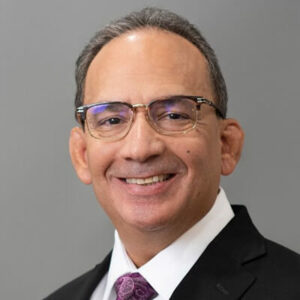In today’s market, having a recognizable trademark can be essential to protecting your brand and business. While it may seem that procuring a mark would be enough to safeguard your business’s interests, there can be issues when there is nonuse. Therefore, it’s important to know: What is nonuse of a registered trademark?
What is a Trademark?
According to the United States Patent and Trademark Office (USPTO), “a trademark can be any word, phrase, symbol, design, or a combination of these things that identifies your goods or services.” A trademark is assigned to goods, and a service mark is assigned to services.
Some recognizable examples of trademarks include Coca-Cola’s logo, Nike’s swoosh and “just do it” phrase, and Dunkin’ Donuts’ “America runs on Dunkin.”
A trademark allows the owner to protect how a word, phrase, or logo is used in connection with their goods or services. When a business holds a trademark it:
Once you register your trademark in Florida, it will create protection for your associated name or design and provide a way to seek legal recourse should another party attempt to use your protected name or image in the state. Registering your trademark with the USPTO provides broader federal protections.
What is Nonuse of a Registered Trademark?
When you register your trademark with the USPTO, certain requirements must be met to maintain your registration. Generally, you must:
- Use your trademark in commerce,
- Show continuous use of your trademark, and
- Meet certain filing requirements
You will also be expected to delete goods or services that are no longer used. After a trademark owner continually uses their trademark for five years after the registration date, they can file a Section 15 Declaration of Incontestability. Once the Section 15 declaration is filed, the trademark becomes incontestable. Once a trademark is incontestable, “various aspects of the registration cannot be challenged by third parties (such as the trademark’s validity).” If continuous use stops, the time will restart from when the mark is back in use. A section 15 declaration can only be filed for trademarks registered on the USPTO’s Principal Register.
The Trademark Modernization Act (TMA) allows trademark registrations to be removed or canceled for nonuse. A person can file a petition requesting that the USPTO begin proceedings to remove (expunge) or reexamine registration for a trademark that either has never been used in commerce or was not used in commerce before a particular relevant date. Generally, the time limit for requesting an expungement proceeding is between 3 and 10 years after the registration date. However, after December 27, 2023, an expungement proceeding may not be requested against any registration older than ten years.
What is Trademark Abandonment?
Trademark abandonment occurs when the owner of a trademark stops use. According to the Trademark Act, “a mark shall be deemed to be abandoned “[w]hen its use has been discontinued with intent not to resume such use. Intent not to resume may be inferred from circumstances. Nonuse for 3 consecutive years shall be prima facie evidence of abandonment.” Once it’s determined that a trademark has been abandoned, the owner loses certain rights, and others may use the mark. There can also be circumstances when a trademark is canceled for nonuse with an intent not to resume.
Exceptions for Nonuse
There are certain limited excuses for nonuse. Essentially, to be excepted from abandonment, the holder would have to be able to show that the interruption was due to something beyond their control.
Contact an Experienced Florida Business Attorney
Attorney Richard Sierra at the Florida Small Business Center assists clients like you with business and litigation matters. As always, Our Goal Is to Help You Succeed™. For an appointment, you may call us at 1-866-842-5202 or use the contact form on our website. We represent small business clients throughout the State of Florida, including Coral Springs, Coconut Creek, Boca Raton, Delray Beach, Pompano Beach, Sunrise, Fort Lauderdale, Miami, West Palm Beach, Jupiter, Deerfield Beach, Stuart, Port St. Lucie, Orlando, Naples, Fort Myers, Sarasota, Tampa, and surrounding communities.
